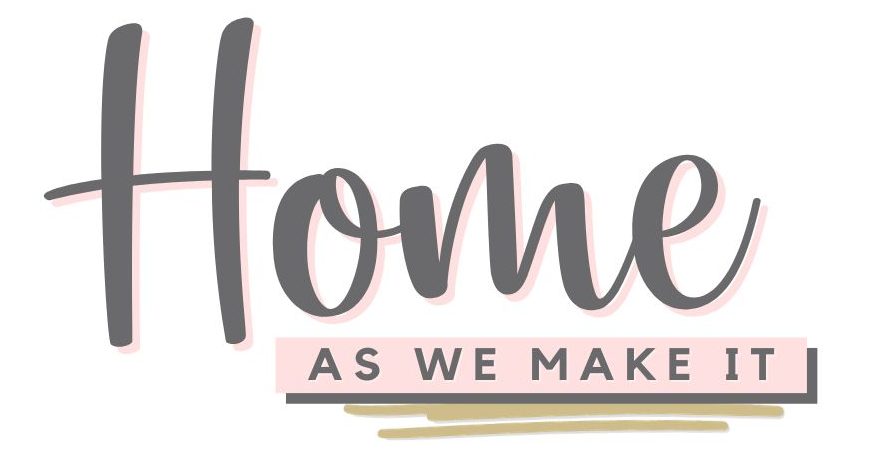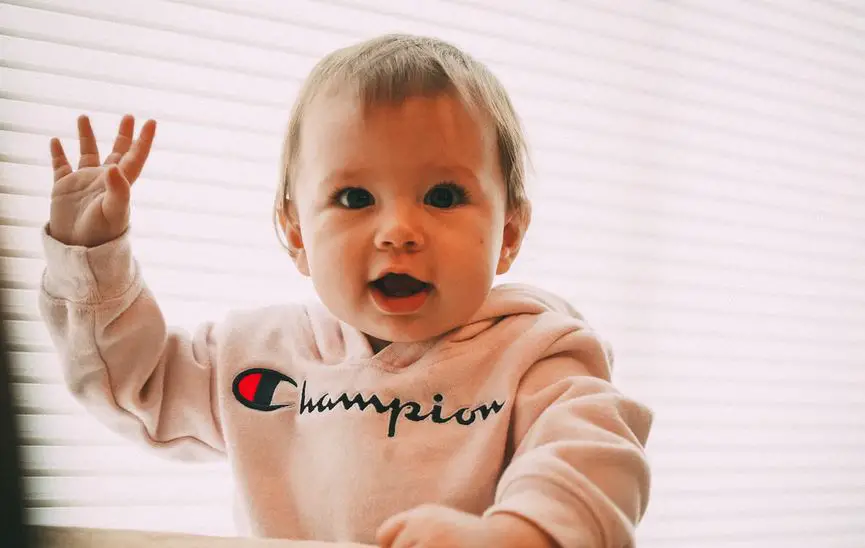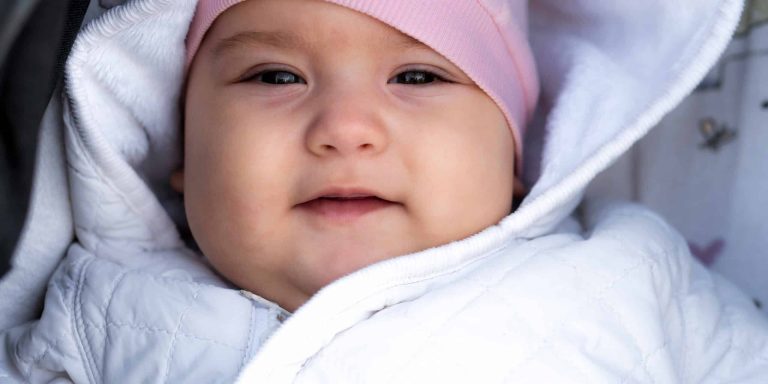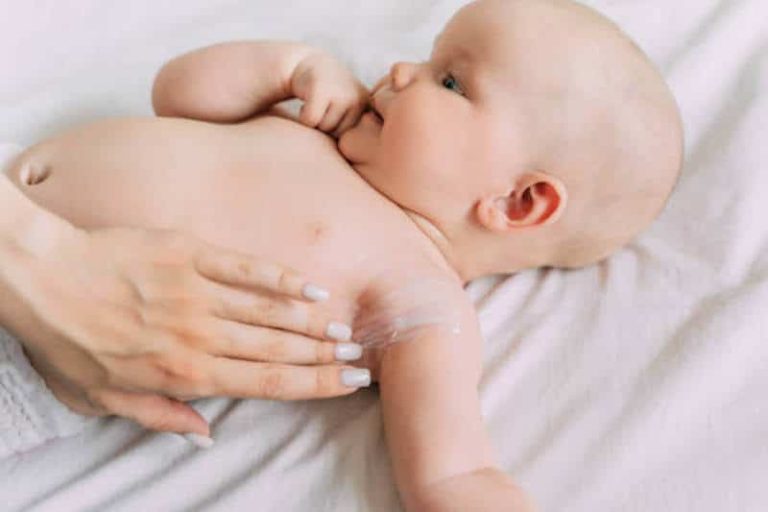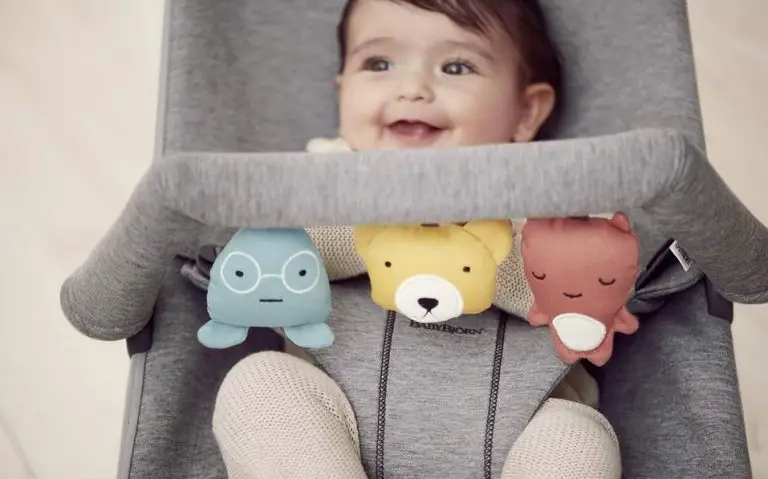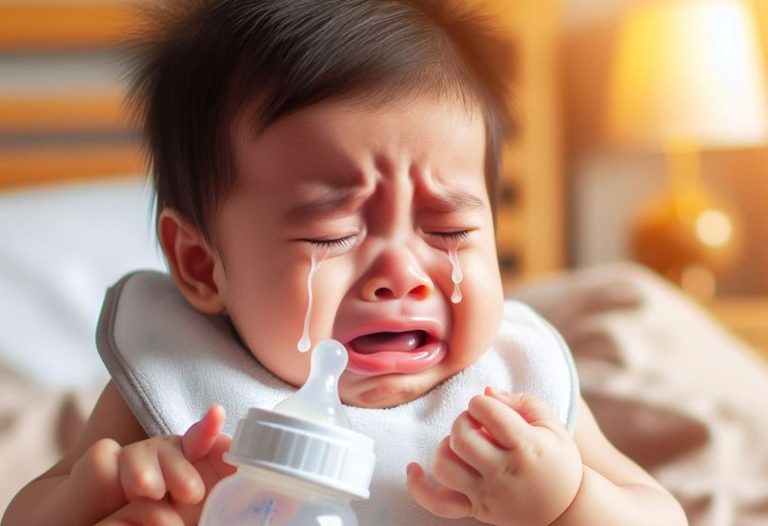Baby Stopped Cooing And Babbling (Here’s Why)
The sweet, nonsense syllables of your baby’s babbling likely filled your heart with joy in recent months. You relished those “dadada” and “mamama” sounds as you watched your little one discover the power of language.
But perhaps you’ve noticed the babbling has slowed down or even stopped altogether. Now the coos and babbles that once brought a smile to your face are few and far between.
Note: This post may contain affiliate links, which means if you buy from my link I might make a small commission. This does not affect the price you pay. See the full affiliate disclosure here.
It’s natural as a parent to wonder why your baby stopped babbling and what it might indicate about their development.
In this post, I’ll talk about why your baby stopped cooing, signs that indicate you should seek help, and how to encourage your baby to babble.
Is It Normal For Babies To Stop Babbling?
Babies go through many phases of communication development in the first year, and it’s perfectly normal for them to stop babbling.
In fact, they’ll start babbling again soon after.
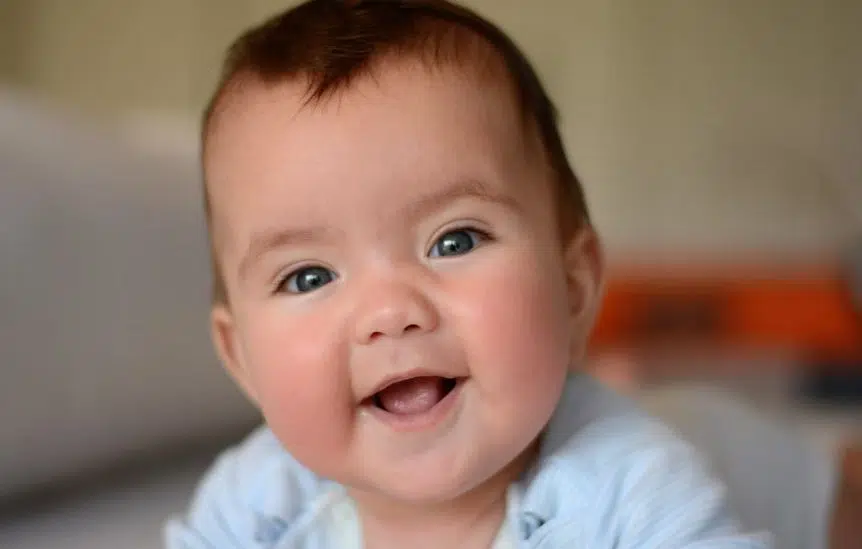
Babies begin cooing and making vowel sounds around 2-3 months old. This early babbling lays the foundation for real speech.
And at around 6 months, babies start putting consonants and vowels together like “ba-ba-ba” or “da-da.”
Also Read: Toddler Grabbing Tongue
Why Did My Baby Stop Babbling?
Here are some common reasons why babies might babble less sometimes:
Learning New Skills
It takes a tremendous amount of brainpower for babies to start hitting major physical milestones like rolling over, sitting up on their own, and crawling.
Your little one will focus all their mental and physical energy on mastering this.
And as a result, your baby will stop babbling.
However, this is temporary, and your LO will start babbling soon after.
Teething
The pain and discomfort of teething can be really distracting and overwhelming for babies.
When new teeth are erupting, babies tend to chew on toys, their fingers, cold washcloths, or anything they can to soothe their sore gums.
Because they are so focused on this, they will babble a lot less than usual.
Also Read: Baby Keeps Rubbing Face Into Mattress
Some babies even babble less because teething impacts their moods. The pain can understandably make some babies fussy and irritable.
Overstimulation
Babies can become overstimulated by too much sensory input and activity.
When a baby is feeling overtaxed, they have a hard time processing all the sights, sounds, and experiences around them.
All this information overloads their developing brains and nervous systems.
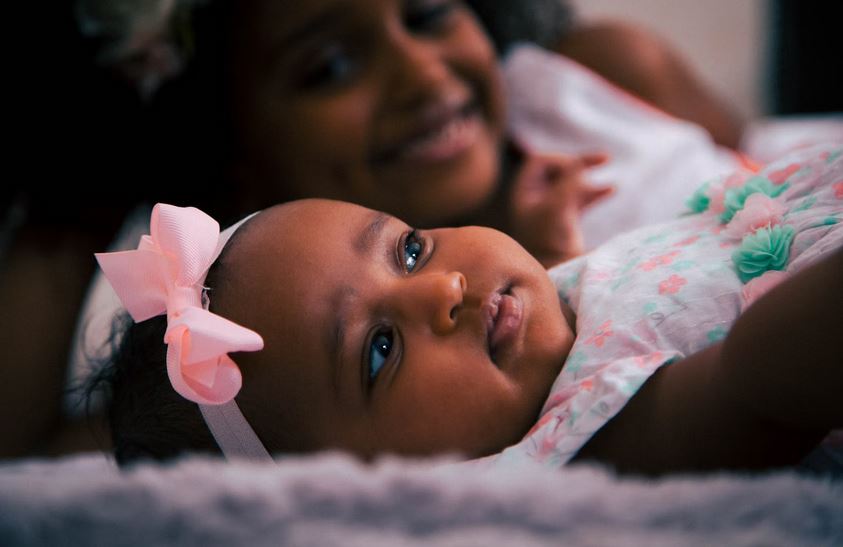
An overstimulated baby will start to act fussy, irritable, and withdrawn. They try to shut out the excessive stimulation by shutting down.
And one way babies shut down when overstimulated is by stopping their babbling.
Less Attention
Babies are highly sensitive to their environment and the people around them. If they receive less interaction and attention, they may become quieter.
Without lively back-and-forth interaction, babies have little motivation to babble.
If their attempts at communication are repeatedly ignored, they may shut down socially.
Babies need loving stimulation and conversation to blossom verbally.
Illness
Babies feeling under the weather from a cold, virus, or other illness may not have the energy for babbling.
Sleepiness, irritability, and discomfort understandably take priority.
But as sickness clears up, your baby will start cooing again.
Hearing Problems
Babies with undiagnosed hearing impairments often show a decrease in babbling around 6-8 months old.
If your baby has stopped babbling altogether, it’s best to talk to a pediatrician – especially if they don’t respond consistently to sound.
How To Encourage Babbling
If your baby has slowed down babbling, here are fun ways to encourage it:
- Get up close and stick out your tongue, make funny faces, and talk to your baby. This will make them respond!
- Copy their sounds! If your baby makes a “da” sound, repeat it back. This back and forth stimulation inspires more babbling.
- Play music! Babies love listening to music, and may spontaneously sing along with coos and babbles.
- Talk often. Narrate your day to describe what you’re doing. The more they hear your voice, the more they’re inclined to “talk” too.
- Display unbreakable mirrors to let your baby “talk” to their reflection
Keep conversing with your little one, and they will start babbling before you know it!
Also Read: Mother In Law Won’t Give Baby Back
However, your baby hasn’t started babbling again after a month or so, discuss concerns with your pediatrician.
Signs It’s Time to Seek Help
Sometimes unfortunately, it may be something serious. Call your doctor if you observe any of these behaviors:
- If your baby doesn’t make any sounds for a long time.
- If they stop making the consonant and vowel sounds they used to babble.
- If they don’t react to sounds, voices, or their name.
- If they don’t start babbling again after being sick.
- If they don’t show interest in using gestures or facial expressions to communicate.
It’s a good idea to see a pediatric audiologist to check their hearing. Speech therapy in the early stages can also help them start babbling again.
FAQs
